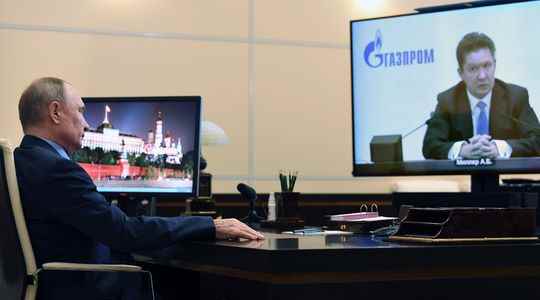The atrocities committed in Ukraine by the Russian invader confront us with our responsibilities as Europeans, both the main financial client of the aggressor autocrat and defender of the ideals of freedom and democracy of the assaulted nation. Between these two roles, we have to choose. Three-quarters of a century of peace in Western Europe has led us to believe that peace can be achieved without effort. But as the fatal Munich agreements of 1938 remind us, when the enemy of our freedoms and our values of the Enlightenment crosses the red lines, we must know how to sacrifice a little of our immediate comfort to stop it.
Since February 24, Europe has been at war. In economic warfare. Our major economic weapon is a total embargo of imports of Russian hydrocarbons. Putin’s ability to finance his aggressions, now in Ukraine and who knows where in the future, would be quickly eliminated if this essential source of income were to dry up. But what sacrifices should this entail for France and its partners?
An embargo on Russian coal and oil would have a rather symbolic impact, because the two parties, Russian and European, could easily reorganize their sales and supply network. Such an embargo could only have a significant impact on the Russian budget if we were able to quickly convince the Chinese and the Indians to join in it.
Natural gas is the key subject, because the Russians do not have the ability to redirect their gas exports to these alternative customers, in the absence of appropriate infrastructure. Of all the energy consumed in France, Russian natural gas represents only 3%. A myriad of actions would allow us to minimize the impact of its removal, such as a little sobriety (lowering the thermostat) and flexibility in electricity consumption to lower peak consumption achieved thanks to gas, an increase in nuclear production and renewables, an increase in gas imports and production in the Union, or a relocation of the production of nitrogenous fertilizers which consume a lot of natural gas.
One hundred euros per European and per year
According to a recent study by the Economic Analysis Council (CAE), these substitution efforts would enable us to ensure that such an embargo would only reduce French GDP by 0.2% or 0.3%. A straw compared to the stake. This very detailed study takes into account the cascading effects throughout the value chain in 30 different economic sectors, as well as the price and cost increases induced at all levels. The drop in income in Europe would be around 0.3%, or around 100 euros per European and per year.
But the situation is more worrying for Germany, whose imports of Russian gas represent 15% of total energy consumption across the Rhine. For this country, an embargo would lead to a fall in GDP of between 0.3% and 3%, depending on the ability to substitute natural gas across the Rhine.
Together with Eric Chaney, Thomas Philippon and Richard Portes, and supported by many European and German economists, we have taken the initiative in a call to impose a total embargo on coal and oil, and a tax on imports of Russian gas. This would make it possible to maintain the most essential and least substitutable uses of gas in the Union, while capturing part of the gas revenue since the Russians would be forced to lower their prices to maintain their competitiveness.
According to the same CAE study, a 40% tax would reduce imports by 80% while reducing the economic impact in Europe by a factor of 3 or 4 compared to a total embargo. It is therefore the right strategy to cut off supplies to the aggressor.
Some sectors will be considerably affected, which requires targeted and timely public intervention of the same nature as what was done during the pandemic. Moreover, a possible doubling of the price of gas on the market will have an intolerable impact for the most vulnerable households. But the blocking of consumer prices, or the modulation of taxes, is neither tenable in the medium term, nor economically effective in dealing with the new global energy situation. Such a policy would above all benefit wealthy households. It is better to target aid on those who really need it, for example through a well-structured inflation check. This is how we will win this war.
